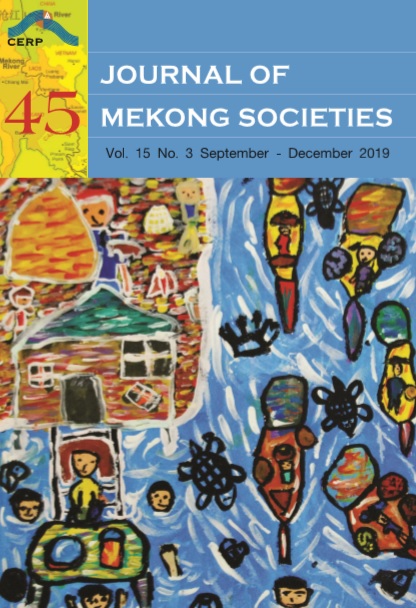Problems and Practices of Teen Mothers at School in Khon Kaen Province, Thailand
Main Article Content
Abstract
In a strictly sexualized society, teen mothers often face social exclusion. However, in the study on which this article is based, although the teen mothers encountered such problems, they did not surrender to social dominance. They tried to fight for dignity and acceptance. The aim of this study was to investigate the use of capital and habitus in the practices in educational institutes of 20 teen mothers living in Khon Kaen province. Qualitative research methodology was employed to conduct the study. Data were collected through life histories, in-depth interviews, and observation. Data were analyzed by content analysis based on Pierre Bourdieu’s framework. The study found that when teen mothers were faced with bias and gossip of their school friends, non-acceptance of their pregnancy at school, and physical conditions that interfered with studying, they tried to manage and negotiate with the context in order to solve these problems. They had access to various types of capital, namely economic, social, and cultural capital as well as habitus, which enabled them to pursue their goals. For instance, some teen mothers from financially well-off families, together with their parents, used their economic capital to transfer to another school to avoid discrimination. For those who remained in the same school, some were able to use social capital, especially social bonds with their teachers and friends who helped them to continue with their studies, protected them, and helped relieve their stress. Their cultural capital was linked to habitus in the use of the culturally-valued concept of motherhood to negotiate with friends not to terminate their pregnancy. The article, therefore, argues that these teen mothers, while seen as having very limited resources because of their young age, were able to use economic, social and cultural capital as well as habitus to negotiate with the constraining social field of relationships in school to keep their social position and to transform their status from “victim” to that of active “agency.”


